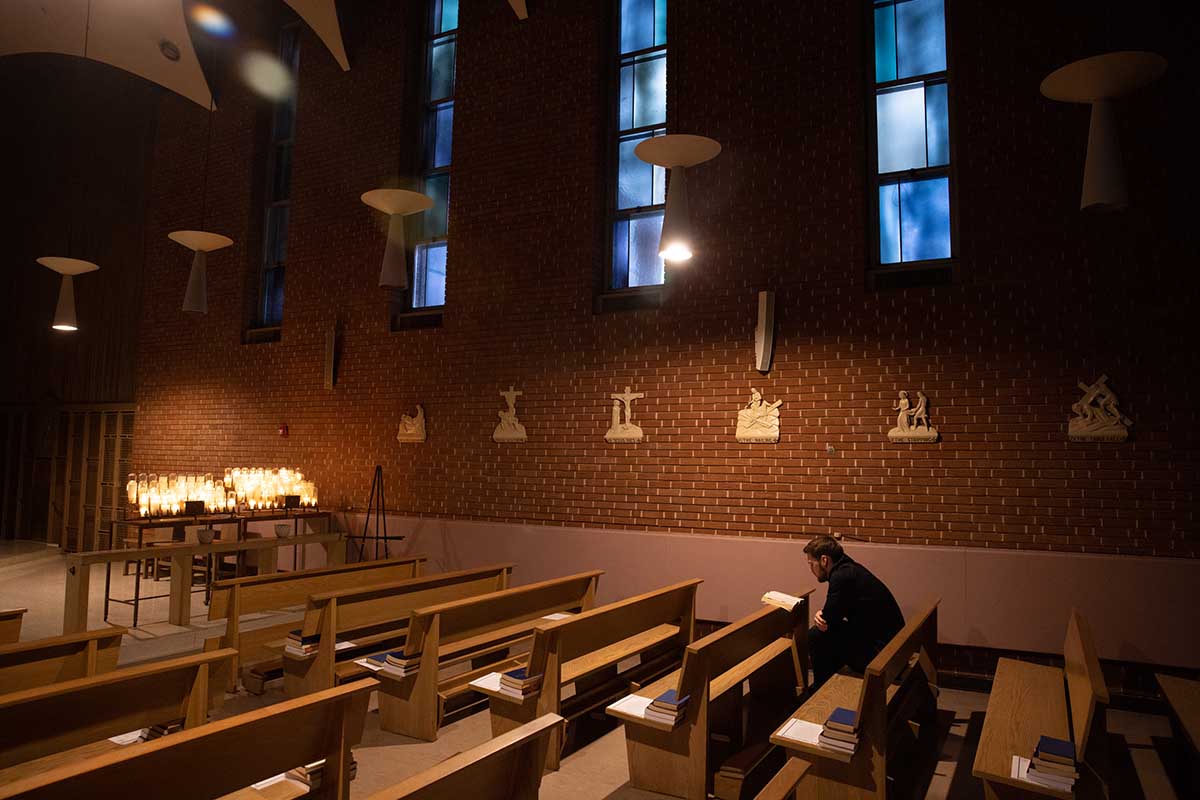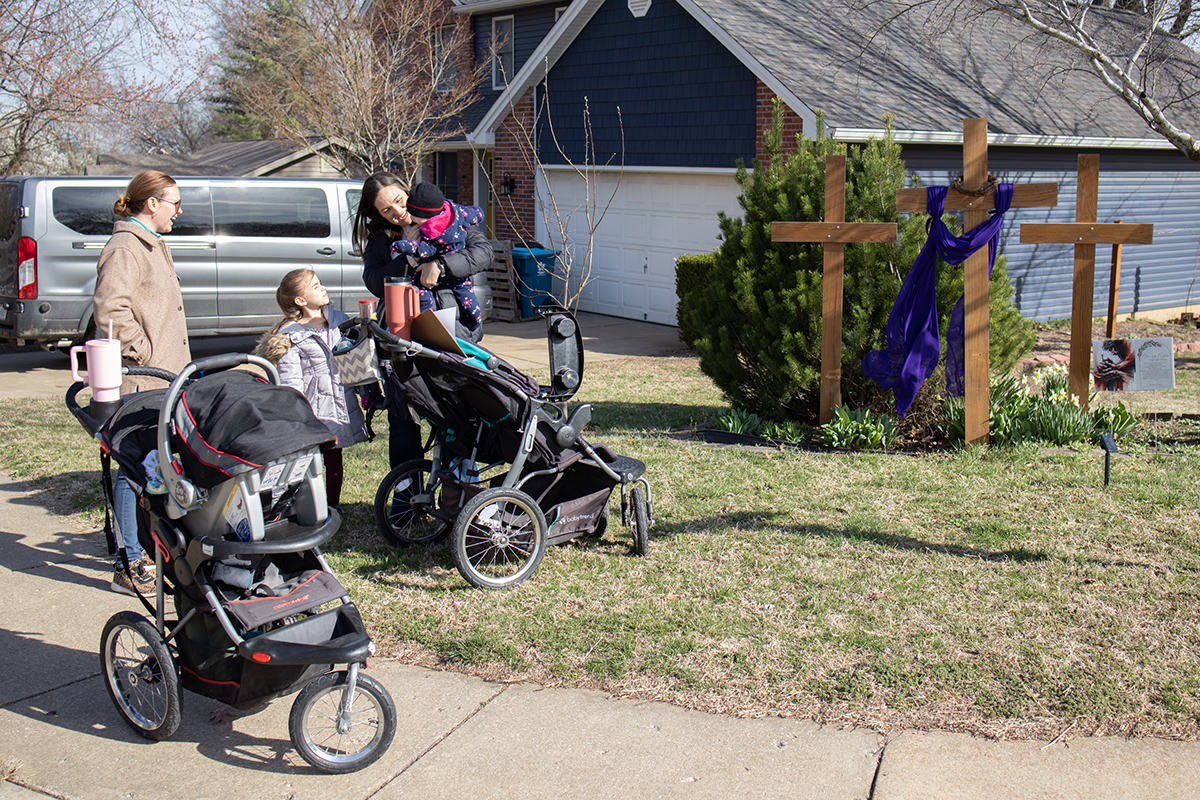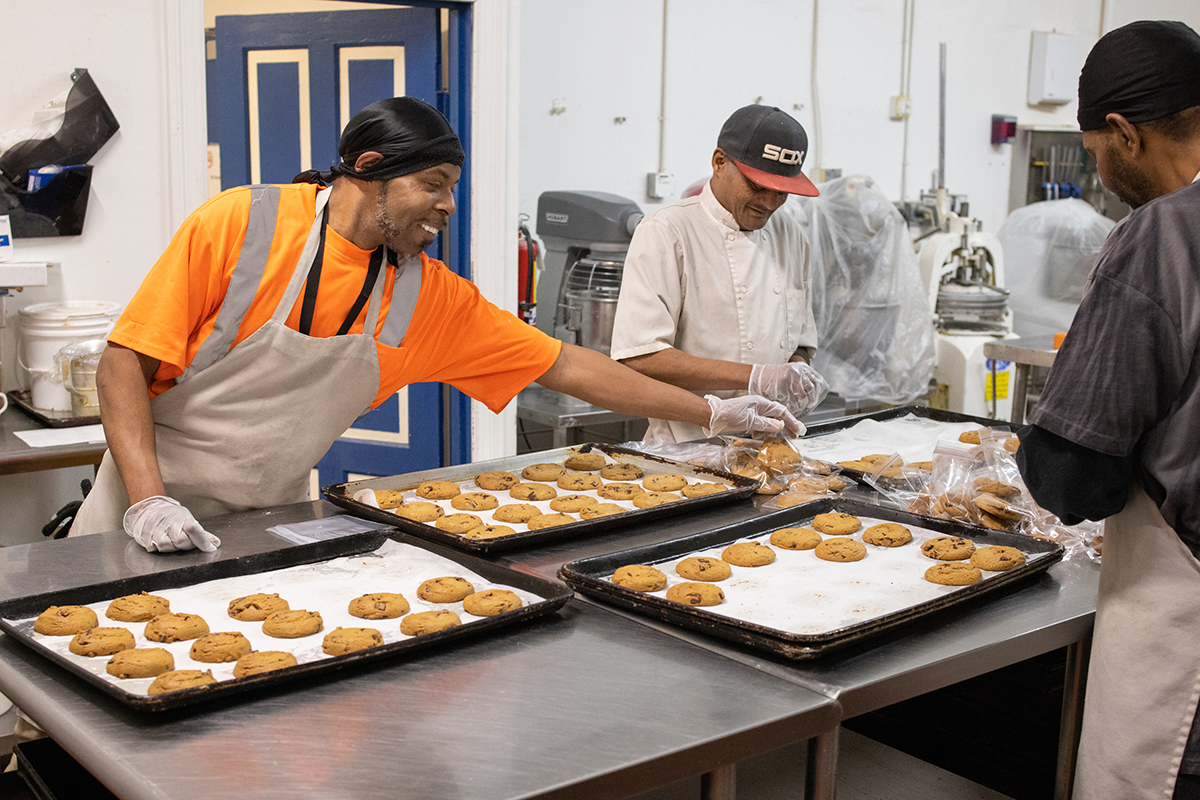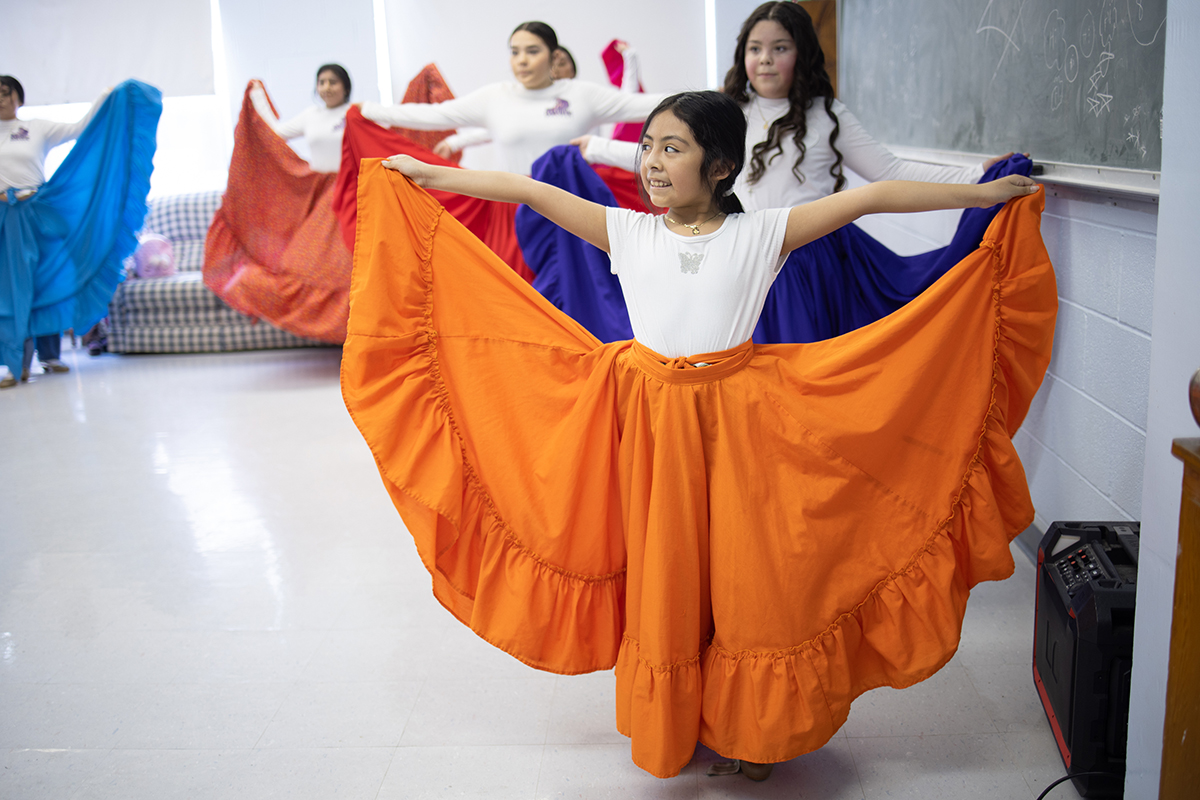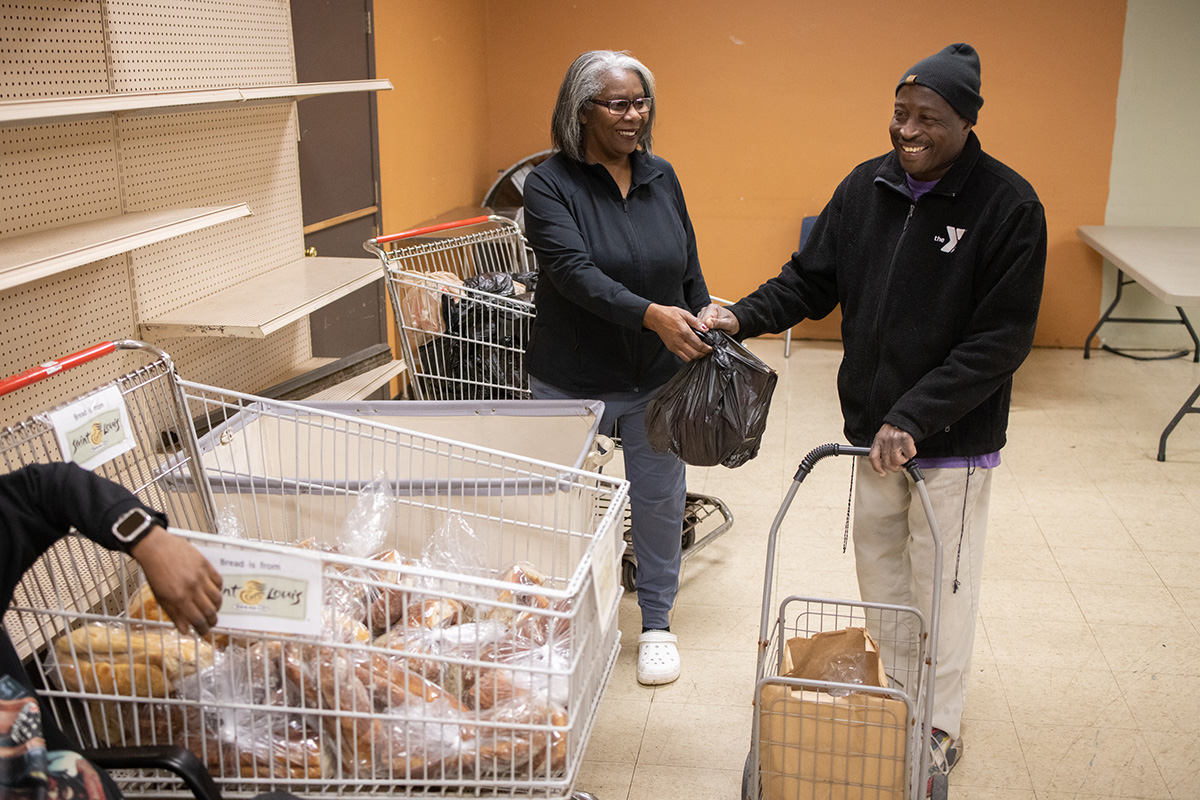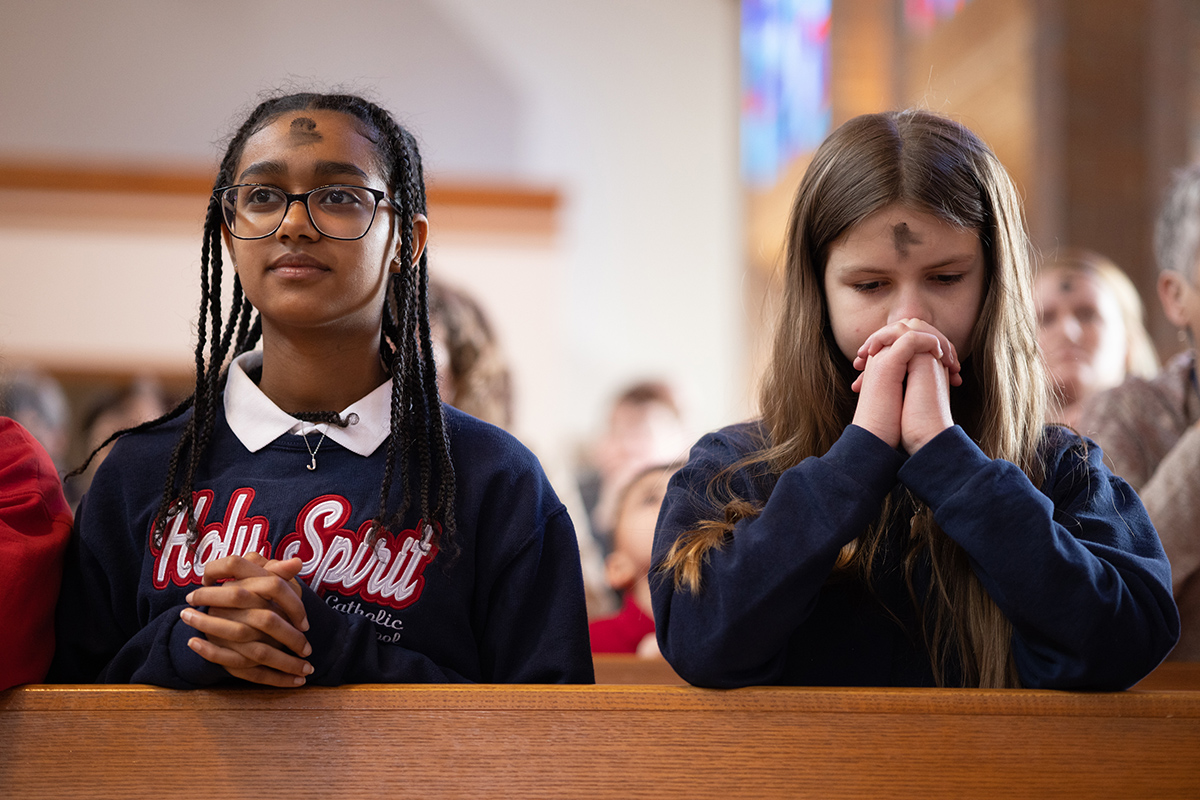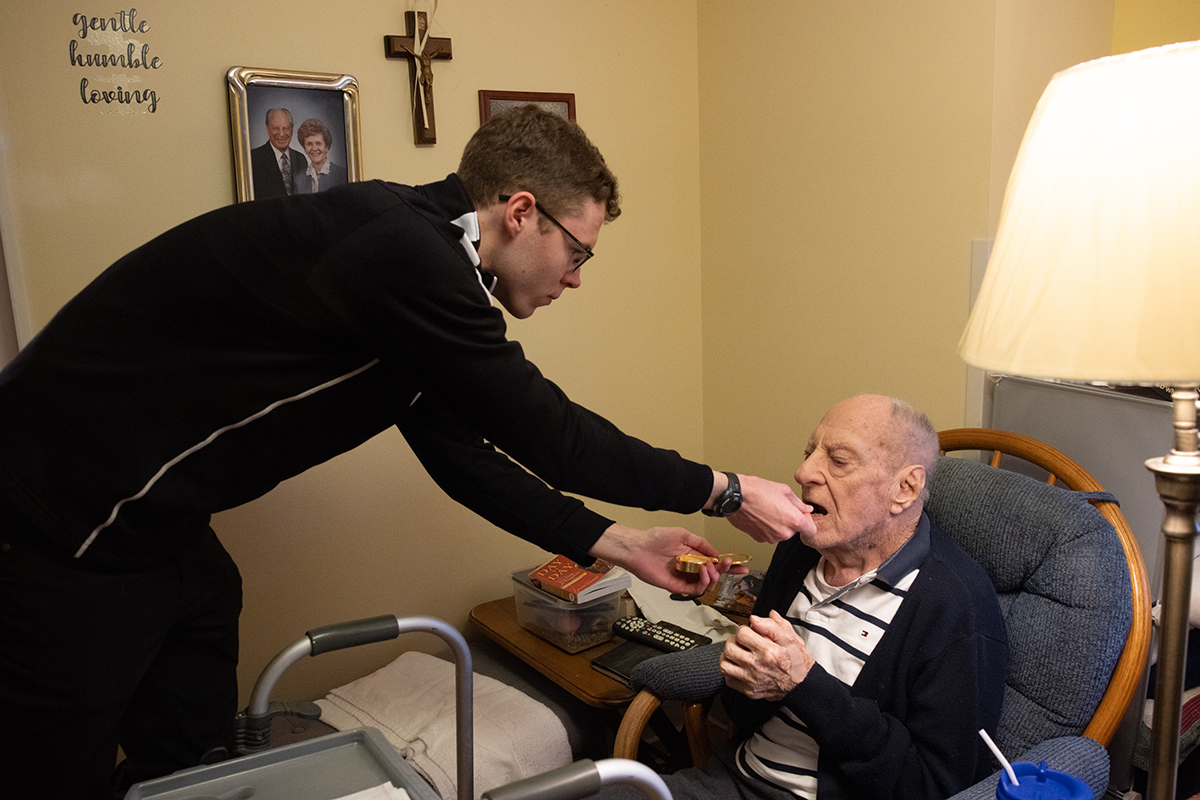A leap of faith: Maryknoll Lay Missioners grateful for their opportunity
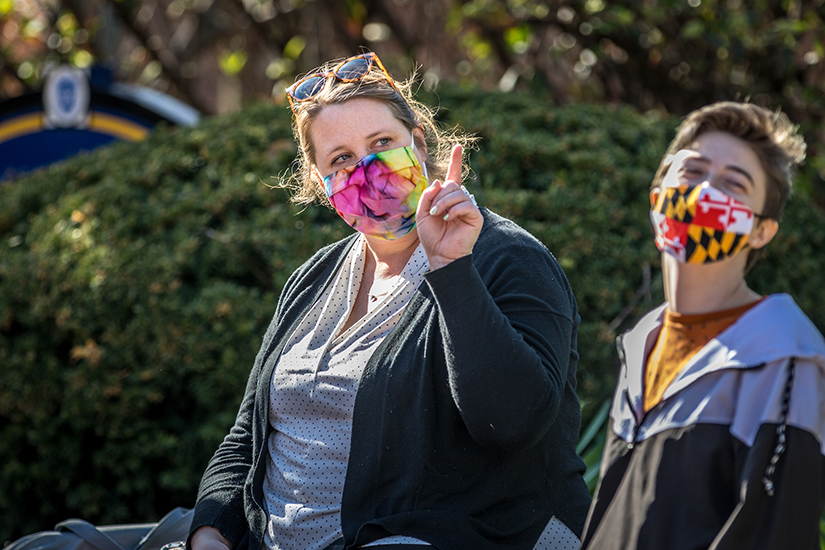
Vicki Simon, Becca Muder and Heidi Cerneka are St. Louis Catholics whose faith and lives were deeply touched by their time volunteering with the Maryknoll Lay Missioners program.
Setting a path
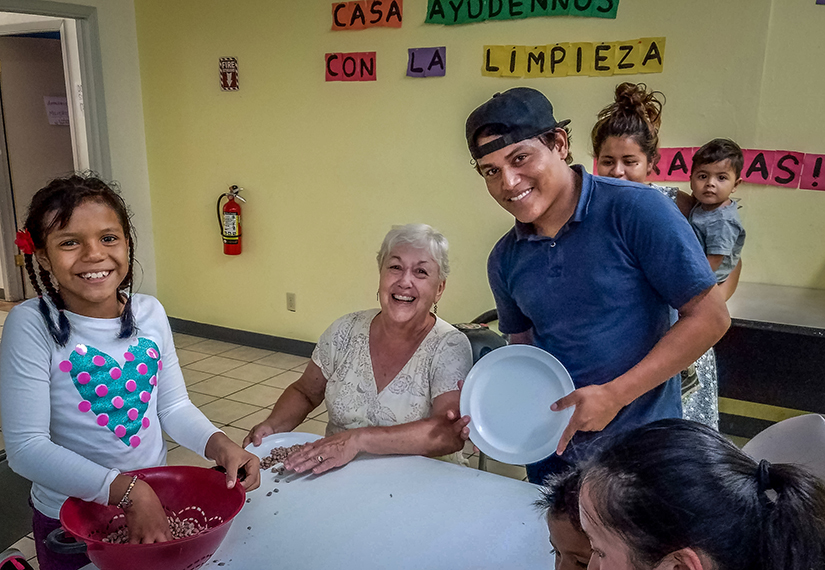
Serving as a Maryknoll lay missioner was a meaningful and joy-filled time of Vicki Simon’s adult life — second only to raising her children.
Simon served from 1998-2006, with the first four years in Nairobi, Kenya. The work later influenced her to work with disadvantaged and vulnerable people as director of social ministry at St. Francis Xavier (College Church) Parish in St. Louis and with the Ignatian Volunteer Corps.
“I have never regretted for one minute the path it set me on,” said Simon, who continues to volunteer in St. Louis and at Annunciation House shelter along the U.S.-Mexico border, serving immigrants seeking asylum in the United States.
Simon previously worked in human resource management in the corporate sector, as a university MBA career and placement advisor and a Spanish teacher.
She received hospitality gifts from the Kenyan people and the Maryknoll family of priests, religious and lay missionaries and of a faith-filled community living, which she’d never experienced before.
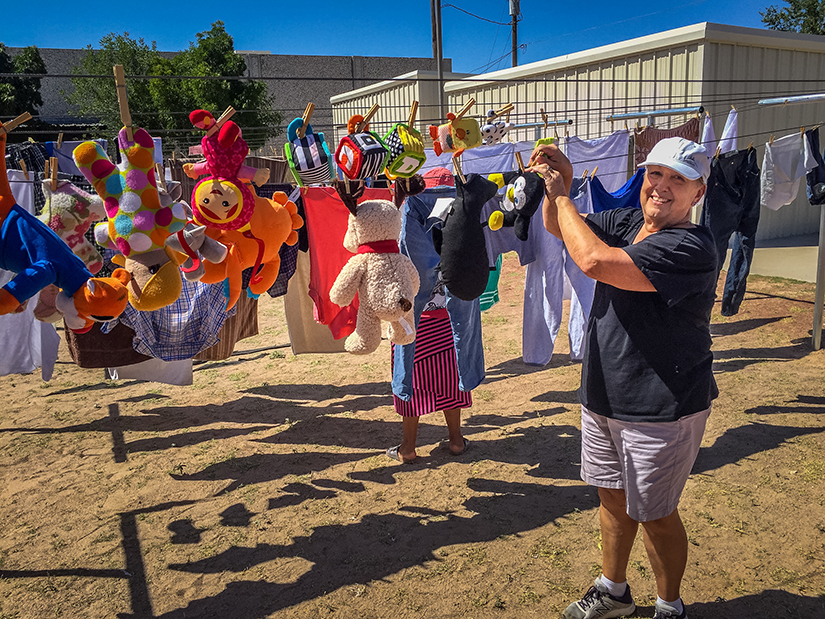
The faith aspect was utmost, putting trust in God. “I’ve been very blessed and hadn’t had to rely on God the way the people I worked with in mission did. In a survival mode, you pray a lot, you fall back on your faith a lot,” said Simon, a St. Francis Xavier parishioner.
Personal encounters
Relationships are foremost in mission lands, Simon said. “It provided me the personal encounters I was hoping to have in direct service. I learned resilience, strength from adversity and gratitude from the people I worked with.”
Returning home was difficult. “You’ve been living with people who are direly poor or have great disadvantages. Unemployment when I was there was 65 percent in Nairobi. It’s just so unbalanced, we live in such an inequitable world,” Simon said of her adjustment. (Maryknoll now has a re-entry program.)

As a missioner and later as a Maryknoll Lay Missioners board member, Simon has a glimpse of tangible results from the missions. An example is a soy-nutrition ministry Maryknoll lay missioner Ann Greig co-founded in 1994 to improve the health of Salvadorans with limited means, especially malnourished children and pregnant women.
“Every missioner has a ministry that produces results,” Simon said. “The goal is to help the local people grow that business or service, be a part of it but not running it as much as be a companion on the journey of people trying to make a living.”
A challenge
Becca Muder, now a campus minister at Saint Louis University, served as a Maryknoll lay missioner in Brazil for two years and El Salvador for a year and a half before returning to the United States last year. Her primary ministry in El Salvador was the Patronato Lidia Coggiola, a nonprofit organization focused on community education and transformation in a rural community with limited access to clean water, proper nutrition and employment, along with the constant stress of living in a gang-controlled area.
In Brazil, she provided pastoral care to incarcerated populations, emphasizing women’s issues and empowerment as well as restorative justice practices, collaborating with the Archdiocese of São Paulo.
She joined Maryknoll Lay Missioners in her late 20s. “It was definitely in a phase of seeking,” said Muder, who has a background in pastoral ministry with young adults and social justice education. Prior to joining Maryknoll Lay Missioners, Muder served for four years as a program and recruitment coordinator for Amate House, the young adult volunteer program of the
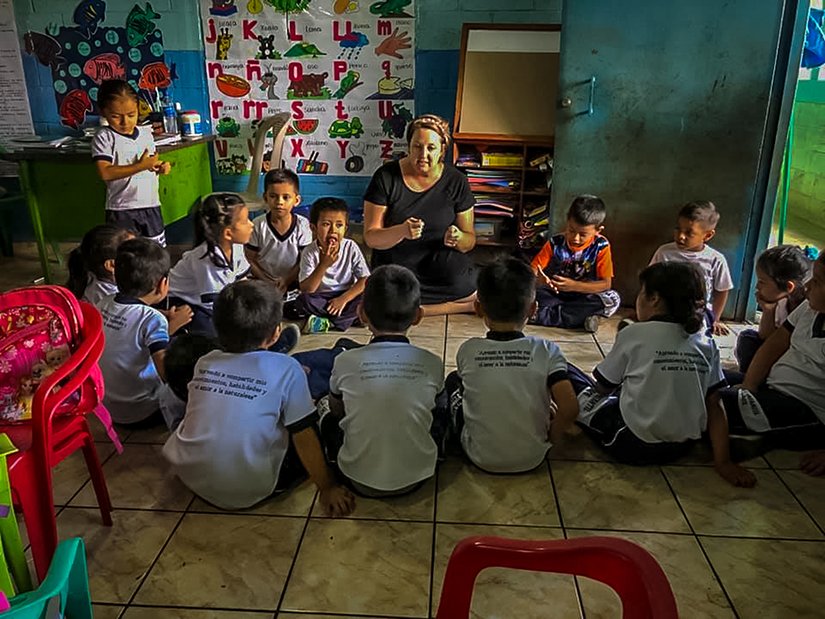
Archdiocese of Chicago.
With members of her Chicago parish, she attended an immersion trip to El Salvador and became acquainted with a Maryknoll lay missioner. “It was like a light bulb went off,” Muder said. “I thought this was a good way to put my faith into action in more of a radical way.”
Personal growth
Moving abroad, learning a language and trying to be useful in a different culture were the hardest things she’d ever done. “It was a leap of faith. But I grew as a person. God really knew that I needed to grow in ways that I probably wasn’t aware of. I feel I have a better sense of who I am as a person,” she said.
The experience has helped her at Saint Louis University, where she works to help students use their privilege to serve people on the margins. She’s part of a team of campus ministers and interns. She coordinates small, faith-sharing communities for students, leads faith-formation and catechetical programs such as a webinar on “Fratelli Tutti,” Pope Francis’ encyclical.
She also helps with retreats and the immersion program and is the campus minister for one of the residence halls.
The mission work helped her realize that all people are connected. “Whenever I didn’t understand something or needed help, there was always someone put in my path to be a teacher,” Muder said. “The people I was serving were teachers.”
A global mission
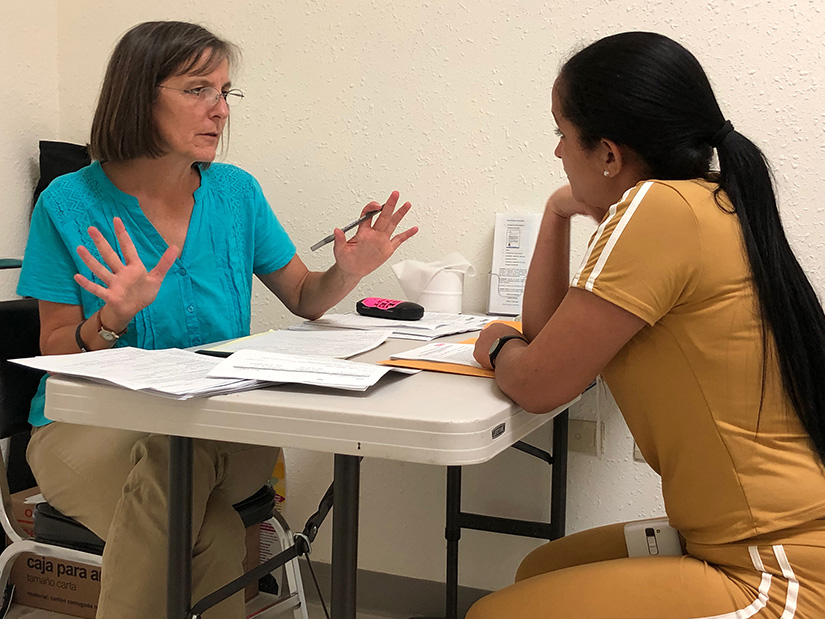
Heidi Cerneka is in the middle of the migration saga across the Mexico-U.S. border serving with the Maryknoll Lay Missioners as an attorney for people in immigration detention, most of whom are seeking asylum.
She relates her efforts to the call from Jesus and the Church to help others.
“My faith is far deeper and more convicted or stronger because of Maryknoll,” Cerneka said. “The world is so much bigger and smaller at the same time. I have a clear sense of global mission, and as part of the Catholic Church which is also global, a clear sense of our responsibility and our call, all of us who call ourselves Christian and Catholic, to build the reign of God everywhere. In other words, I understand how what I do in my life must consider how it will impact Ana Lucia in Brazil and Patrick in Kenya. These realities have faces and names and I know, because I lived in the middle of it, how it matters. I also know that I can’t just take care of my own little world around me.”
Cerneka attended at Our Lady of the Pillar School and St. Joseph’s Academy. She also lived in St. Louis for two years in the early ’90s and worked at Queen of Peace Center, a Catholic Charities federated agency that provides family-centered substance abuse treatment for women. She went to Brazil from 1996-2014 and then law school in Chicago at Loyola University, before moving to Kenya for a year with Maryknoll and then her current assignment at the border.
Increases in the number of migrants and unaccompanied children have been reported at the U.S.-Mexico border. But Cerneka hasn’t seen much change because of continuing Title 42 expulsions in which people are denied the possibility of asking for asylum and sent back to Mexico due to a public health concerns related to the COVID-19 pandemic.
It’s illegal and immoral, Cerneka said, because U.S. law and the U.N. Convention on Refugees guarantees people the right to ask for asylum. “They can’t just go home. They’re still threatened,” she said.
The concern about COVID-19 seems odd, Cerneka said, since people with lawful travel documents are allowed to arrive without scrutiny of their health status. “I flew out of the country for something in December and when I flew back, nobody asked me if I had any symptoms, nobody took my temperature, nobody asked me to quarantine, there were no concerns expressed on the plane or at the airport about me bringing in COVID. Closing the land border because we’re claiming it’s a public health emergency is very transparently an attempt to keep people out, not really about public health,” she said.
Cerneka recommends redirecting the funds spent on detention to speedier court procedures that are fair and just “without making enough loopholes that anyone who wants to get in the U.S. can just say ‘I’m afraid.’”
Cerneka said that the border situation is the result of decades of broken immigration and asylum policies, a backlog of asylum cases due to Trump administration policies and factors from Central America and Mexico, including desperate poverty, agriculture disruption due to climate change and gang violence.
As people of faith, “we need to pause and, regardless of the news source we listen to, discern what is the humane, just and moral thing to do. And then ask ourselves: how can I contribute to that. We all have a part in making a more just world. I believe that when Jesus said to welcome the stranger, visit the prisoner, feed the hungry, clothe the naked, he didn’t mean that metaphorically. If we claim to be people of faith, we can’t just sit back and let somebody else do it.”
>> Becoming a lay missioner
Maryknoll Lay Missioners is one of the largest U.S. Catholic organizations that sends laity into mission, with more than 45 years of experience in training, sending and supporting laity in cross-cultural mission.
Maryknoll Lay Missioners accepts single people, married couples and families with children. They range in age from early 20s through retirement age. A three-and-a-half-year commitment enables missioners to get to know the culture of their host countries and to accomplish their work in culturally sensitive ways. Missioners in good standing can renew their contracts indefinitely.
Missioners put their faith in action as they work to build the capacity of local partners to address the needs of their own communities. For information, visit mklm.org.
>> Mission experience
Maryknoll Lay Missioner board member Vicki Simon calls the volunteer effort “a real gift of time and a wonderful, wonderful way to learn to learn about living out Catholic social teaching instead of just talking about it. Maryknoll provides an opportunity to work almost anywhere in the world and provides a balance in understanding the world more clearly. We have no clue what the have-nots lack until we live among the poor.”
Former missioner Becca Muder said, “Don’t be afraid to explore it. I thought if I don’t do this now, I probably wouldn’t do it later on in life. I didn’t want to look back and regret not doing this.”
Muder advises people to pay attention to their motivations and avoid romanticizing the mission work. It is an adventure and helps with perspective, but it is hard work and becomes routine at some point, she said.
Setting a path Vicki Simon is pictured with a migrant family she helped as she volunteered at a shelter, Casa Oscar Romero located in El Paso, Texas, during a trip … A leap of faith: Maryknoll Lay Missioners grateful for their opportunity
Subscribe to Read All St. Louis Review Stories
All readers receive 5 stories to read free per month. After that, readers will need to be logged in.
If you are currently receive the St. Louis Review at your home or office, please send your name and address (and subscriber id if you know it) to subscriptions@stlouisreview.com to get your login information.
If you are not currently a subscriber to the St. Louis Review, please contact subscriptions@stlouisreview.com for information on how to subscribe.

